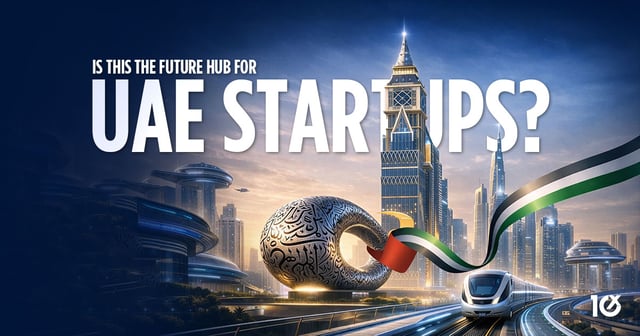Use AI—But Don’t Let It Use You
There’s no denying it—artificial intelligence is transforming the way we do business in the UAE. From automating workflows to generating business strategies in seconds, AI is already a powerful tool for entrepreneurs and SMEs looking to scale smarter and faster.
But are we giving it too much control too quickly?
It’s a question many business leaders are starting to ask, especially as AI begins to move from the lab into the boardroom. One of those urging caution is Rashit Makhat, Director and co-founder of UAE-based tech investment firm, Scalo Technologies. Makhat, like many in the industry, acknowledges the extraordinary potential AI brings—but warns against treating it like a magic solution.
“AI is changing the game, no doubt,” Makhat tells us. “It’s helping businesses become more efficient, more responsive. But it doesn’t understand people. It doesn’t feel. And that matters more than ever in today’s environment.”
Makhat’s warning is timely. As businesses race to adopt AI across everything from customer service to recruitment, some are starting to blur the line between support and substitution. It’s a risky move, say experts, especially when machines are put in charge of decisions that require human nuance, empathy, or cultural understanding.
A revealing case study by the Harvard Business Review followed executive team meetings at a mid-sized Austrian company. The takeaway? AI added the most value not when it led the conversation, but when it helped leaders rethink their options. It wasn’t the CEO—it was the smart assistant in the corner, suggesting angles and surfacing insights.
“When guided by people, AI can unlock better decisions,” says Makhat. “It speeds things up and broadens thinking. But the minute we let it steer the ship on its own, we start to lose the very thing that makes businesses human.”
And the risks of over-reliance aren’t just theoretical.
In the U.S., three lawyers were recently fined US$5,000 by a judge in Wyoming for submitting fake legal cases—hallucinations generated by an AI tool. The incident, and others like it, have prompted judges across the country to issue warnings about the misuse of AI in courtrooms. As Reuters reported, more disciplinary actions are likely to follow.
So, what does this mean for UAE startups and SMEs?
Makhat puts it plainly: “The most successful companies won’t be the ones that blindly adopt every new tech tool. They’ll be the ones that find the right balance—combining innovation with human judgment. Especially for startups, that balance is everything.”
In other words, AI should amplify your expertise, not replace it. It should serve your vision, not dictate it. And while it may be able to draft a business plan in seconds, it still takes a human mind—and heart—to turn that plan into something that truly connects with people.
At the end of the day, AI is an incredibly smart tool. But it’s not the boss. And in the world of SMEs, where trust, relationships, and context matter more than ever, that distinction could be the difference between growing fast—and growing wisely.






